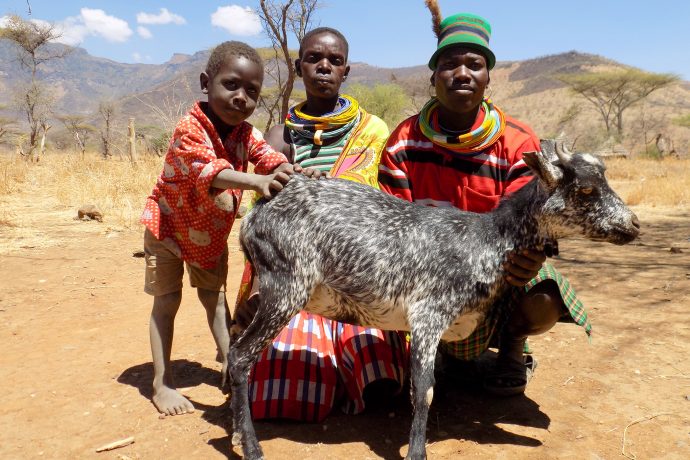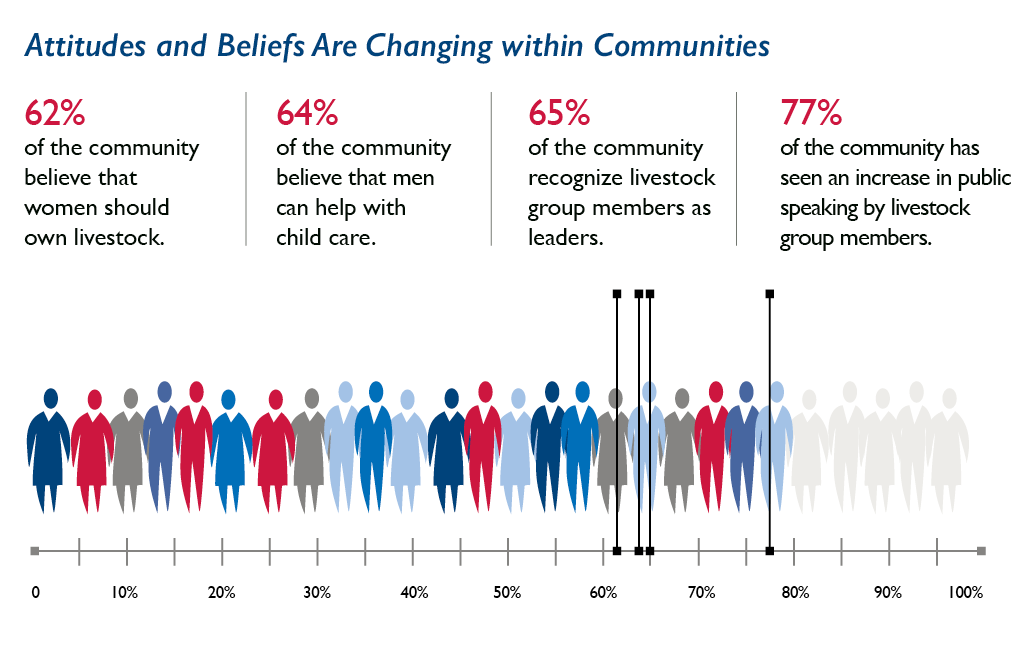
Research shows that empowering women is smart economics. But in many parts of the world, tradition dictates the lives of men and women. Take the Karamoja region of Uganda, where many women are responsible for feeding their families, but lack purchasing power. When Joyce Owalinga first married, her husband Sagal chose when and how to spend the family money.
“When [my husband] went away for long periods of time for work, my children and I had very little food. We would sometimes go to bed hungry…I couldn’t even afford salt and flour, and I had nothing to call my own.” – Joyce Owalinga, a goat owner
Despite doing odd jobs and selling firewood and charcoal, Joyce failed to meet her family’s basic needs. Then, the USAID-funded and ACDI/VOCA-implemented Resiliency through Wealth, Agriculture, and Nutrition (RWANU) project brought opportunity in the form of a breed of goat called Galla, or “milk queens,” from neighboring Kenya.
To diversify livelihoods of rural families and improve food security, the RWANU project, through project partner Welthungerhilfe, organized livestock groups for 2,000 women, including Joyce, to care for the goats and become empowered earners.
Joyce attended trainings and received five “milk queens” of her own. But in Karamoja, men traditionally manage livestock. Even though the project won community buy-in from village elders and others, change came slowly. A fodder bank that Joyce’s group used to feed their goats went up in flames, spurring rumors of arson, although no one was charged. Despite the setback, the group attended more trainings on health management and how to build shelters, and the goats thrived under their care. Soon Joyce grew her stock of goats from five to 15.
“As chairperson of my group, I can also now talk. The other women and community members respect and listen to me, and my husband now respects me.” – Joyce Owalinga, a goat owner
Her husband listened when she spoke to others about how to trim goat hooves, as few men had learned proper animal care. Sagal also let her keep the proceeds from selling her goats’ milk in the village. He intends to give her the first calf born this season. Meanwhile, Joyce made the decision to sell one of her goats and used the profits to start her own business.
“Now I have something that I can call my own.” – Joyce Owalinga, a goat owner

These shifts in gender norms echoed throughout the community. A recent assessment revealed that 65 percent of the community now recognized group members like Joyce as leaders. And while some say children save a marriage, 61 percent of members reported improved marriage dynamics as a result of owning the goats.
By involving younger generations, Joyce and others are also building sustainability. They not only teach their children to spot health problems in goats, but also show them that both men and women can care for them. In this way, the project is making strides toward gender equality and economic empowerment for generations to come.
More about this project on USAID’s Impact Blog.
More about Resiliency through Wealth, Agriculture, and Nutrition (RWANU).







